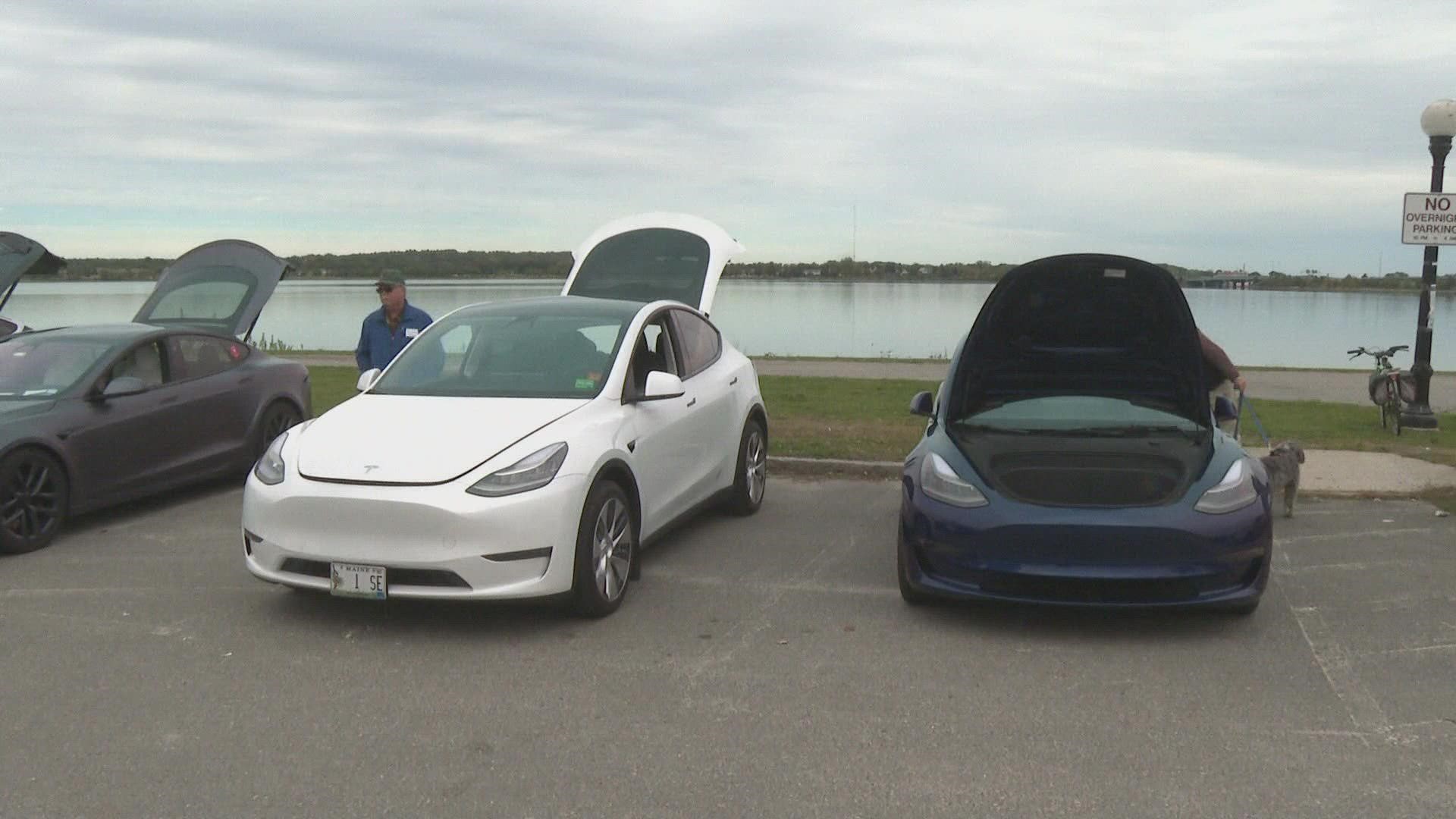PORTLAND, Maine — As more and more auto companies announce their gas-free futures, are some logistical questions that arise.
One I hear often after doing a story on electric vehicles is this: “Can our grid actually handle an all-electric future?”
This is a fair question, especially when you consider there have been instances in California of electric companies asking EV owners NOT to charge during certain peak demand events.
And it’s not just electric vehicles that will increase the strain on electricity generation and delivery. A move away from oil and propane toward heat pumps also will require extra juice.
How much energy do these devices use? Well, it depends on the exact conditions, but we can get a ballpark estimate.
A typical Level 2 electric vehicle charger that you might have installed at your home will draw about 30 amps. Heat pumps tend to run at about 10- to 20-amp range if they are being asked to provide a lot of heating or cooling.
A few items many Mainers already have in their homes draw a similar current.
An electric clothes dryer can draw up to 30 amps.
Electric ranges can draw 30 to 50 amps.
These are all high-electricity draws, but some of them, especially the stove and the clothes dryer, might be used for fewer hours per day compared to an EV charger. I guess it depends, though, on how much laundry you have to do.
Phil Bartlett from the Maine Public utilities commission had this to say about whether the Maine grid is ready for the electrification movement.
“I think in the short term, medium term, we’re in pretty good shape," Bartlett said. "Maine has not had a lot of load growth in recent years in either CMP or Versant territory, so there’s room to add electric vehicles and heat pumps to the grid without needing major investments."
Over time, as there are more EVs on the road, especially fleets of them for governments or companies, he said there will be more stress on the grid, and significant upgrades will be needed.
In the short term we are fine, but what if it all happened overnight?
Joe Purington, CEO of Central Maine Power weighs in on that.
"I mean if everyone got one tomorrow, I think we’d be looking at possibly of constraints on the grid, and really what it would boil down to is do we have enough supply in certain pockets to meet the demand," Purington said.
But if the grids are ready, why do places like California sometimes ask EV owners not to charge their cars?
“Generators have gone down, some weather events have happened that have taken generation offline ... there just isn’t the electricity supply that’s needed, and therefore the governments will step in and ask people to use less electricity during certain hours," Bartlett said.
In some cases, asking EV owners not to charge is just a more targeted, lower impact request compared to telling everyone with a clothes dryer not to do laundry, for example.

